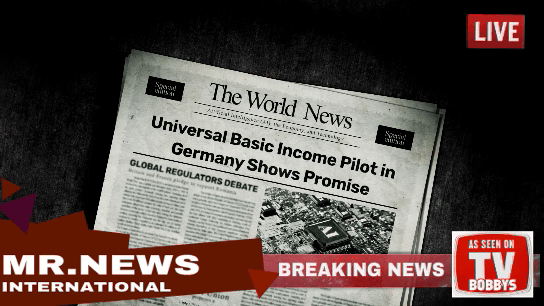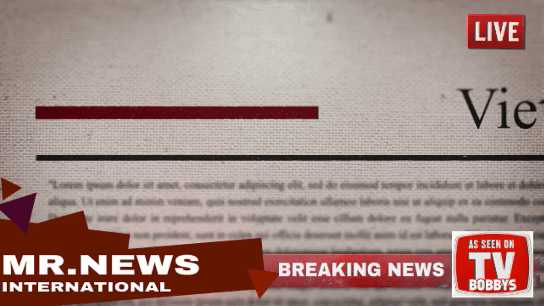-
play_arrow
NEWS NETWORK COMPANY RADIO NEWS NETWORK COMPANY RADIO
-
 play_arrow
play_arrow
MR. NEWS PODCAST NEWSCAST MR. NEWS
Germany’s 2025 has been a turbulent year of political disruption, security concerns, rising social polarization, and cultural unity. A coalition government collapse, a surge in far-right party influence, high-profile violent attacks, and heartfelt commemorations mark a country grappling with history, national identity, and the complex realities of the present.
Political Turmoil: Coalition Collapse and Far-Right Gains
2025 opened in the shadow of political realignment—Germany’s coalition government fell apart late last year after fractious battles over budgetary priorities and leadership. National elections took place in February, months ahead of schedule, propelled by the inability of the SPD, Greens, and FDP to work together under former Chancellor Olaf Scholz. That instability paved the way for strong gains by the far-right Alternative for Germany (AfD), which won its first state election since World War II and remains competitive in both national and regional polls. Mainstream parties face mounting pressure to counter AfD’s anti-migrant, anti-EU rhetoric as their electoral momentum stokes tensions across both urban and rural communities.
Rising Violence: Mayor Stabbing, Hate Crime Surge
Public safety dominated headlines in October following the stabbing of newly elected mayor Iris Stalzer—an attack that left her in critical condition and drew fierce condemnation from political leaders and the public alike. This shocking violence comes amid sharply increased hate crimes: right-wing extremist offenses rose 23% year-over-year, with documented rises in anti-Muslim and antisemitic violence—numbers that have fueled debate about policing, integration, and Germany’s democratic foundations. The incident also sparked renewed scrutiny over security for elected officials and high-profile political figures.
Security and Geopolitics: Hybrid War Warnings
Chancellor Friedrich Merz has warned of what he terms a “hybrid war” driven by outside threats—particularly Russia’s influence operations and cyber-attacks—underscoring persistent anxieties about Germany’s place in the broader European security architecture. Ongoing commemorations for victims of the October 7 Hamas attack on Israel highlight Germany’s growing domestic concern over rising antisemitism and its role as a champion of European values.
Society and Identity: Debates over Retirement and Integration
Debates over raising the retirement age to 70 have resurfaced as Germany’s population ages, with policymakers warning that pension reform will be unavoidable in the next decade. Tension around migration and integration remains acute, especially following public revelations of plans by extremists to forcibly “remigrate” immigrants—a move that triggered weeks of massive counter-protests in defense of pluralism and democratic norms. Meanwhile, Germany’s parliament adopted long-awaited reforms to legal gender recognition for transgender people, a milestone in rights-respecting legislation.
Economic Outlook: Slow Growth, Climate Action
Germany’s economy ministry revised its forecast for 2025 up slightly to 0.2%, reflecting cautious optimism amid European recession worries and global trade headwinds. Automotive giants like Volkswagen and Tesla face unprecedented plant disruptions, labor disputes, and pressure to accelerate green transitions, as Germany continues to block major Chinese business deals affecting electronics and telecoms.
Culture and Unity: Festivals, Memorials, and Art
Chemnitz became European Capital of Culture in January, launching a program of 1,000-plus events celebrating unity and diversity. Berlin is set to commemorate the 80th anniversary of World War II’s end, hosting historical exhibitions alongside the 35th anniversary of German reunification in Saarbrücken. Cultural events—from Oktoberfest in Munich and wine harvests on the Rhine, to Jazzfest Berlin and the iconic Berlinale Film Festival—continue to anchor national traditions and foster community spirit even as public discourse grows more fractious.
The Road Ahead
Germany heads into the final months of 2025 facing unresolved tensions over democracy, integration, social cohesion, and security. The collision of threats—from internal violence to foreign meddling—demands renewed national resolve. Yet, the vibrancy of its cultural life, determined civic activism, and celebration of historic milestones reflect a country still capable of unity even under strain.
Germany’s 2025 is defined by challenge and reflection—a moment of reckoning for Europe’s largest democracy where the forces of division and resilience meet on the same knotted stage.
Written by: NEWS NET CO
Similar posts
Copyright NEWS.NET.CO - HOST: MR. NEWS




Post comments (0)